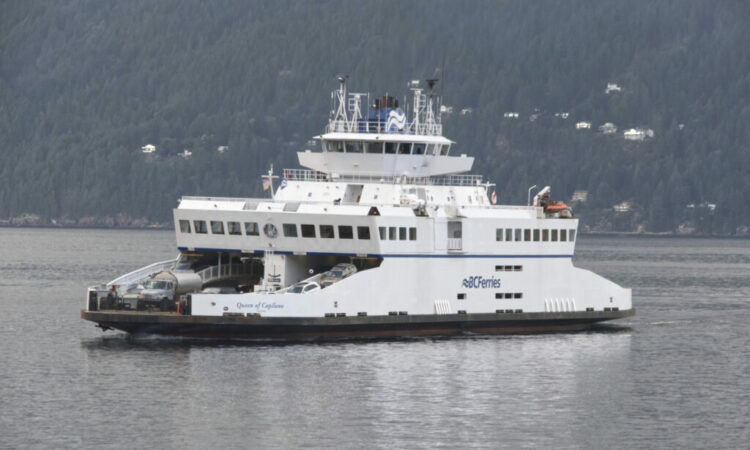The B.C. Trucking Association (BCTA) said while it recognizes the inflationary challenges we are all faced with, B.C. Ferries’ rate stability and transparency is critical to support the efficient movement of goods.
Last week, the British Columbia Ferry Commission announced its preliminary decision on the price cap, which if finalized, would allow average ferry fares to increase by a maximum of 9.2% annually from April 1, 2024, to March 31, 2028.
A final decision – which will take into account recently announced additional provincial funding of $500 million – will be confirmed on Sept. 30.
“Facing labor difficulties and high inflation, B.C. Ferries is emerging from the current performance term in less robust financial shape than initially expected. And the next four years will bring significant additional challenges,” commissioner Eva Hage said in a press release.
“Continued labor supply issues, rising fuel prices, escalating costs associated with maintaining an aging fleet, and a 12-year, $5.2-billion proposed capital plan driven by a need to replace vessels will create substantial pressure. Given this, we believe that a price cap of 9.2% is appropriate and necessary to allow B.C. Ferries to meet the demands of the upcoming performance term.”
‘No more than 3%’ increase
However, B.C. Minister of Transportation and Infrastructure Rob Fleming said the commissioner didn’t factor in the recent $500-million provincial government contribution meant to keep rates more affordable.
“I want to assure British Columbians, particularly those who rely on our coastal ferry service, that our goal of holding annual average fare increases to no more than 3% remains,” he said in a statement.
“As the commissioner works toward a final price cap decision by Sept. 30, 2023, she will incorporate the $500-million contribution to inform her final decision on the price cap for the next four-year term,” he added.
A BCTA official told TruckNews.com that it anticipates B.C. Ferries will maintain average nominal rate increases that do not exceed 3%. “Should this change, BCTA has a longstanding agreement with B.C. Ferries to engage our sector in thorough consultations on rate increases that surpass B.C.’s consumer price index,” the official said.
Cost passed on to customers
A carrier serving Vancouver Island and the Lower Mainland said the rate increase was not unexpected considering the economic environment and the cost is passed on to its customers.
Kelly Hawes, CEO Cold Star Solutions told TruckNews.com, “This in turn flows through the entire grocery supply chain with what I would imagine ends up being an increase in the cost of groceries. The only point that is important to make is that the food vendors raise their prices across the board to cover these increases meaning that the cost of groceries on Vancouver Island remain the same as on the mainland and in turn help to ensure that the overall increase is minimal.”
The proposed maximum increase marks a sharp departure from the previous price caps of 2.3% and 1.9%. The higher price cap is contingent, however, on B.C. Ferries identifying $10 million in operating cost savings over the four-year term. Additionally, the commissioner has reduced B.C. Ferries’ proposed capital plan – the largest in the corporation’s history – by $330 million.
Suggestions to reduce financial strain
An increase in ferry fares affects the cost of goods. The BCTA said approximately 10% of a consumer good cost can be attributed to transportation. An increase in fares means carriers will have to charge more to transport goods, which ultimately gets passed directly onto consumers.
The BCTA offered some suggestions to help reduce the financial strain on trucking companies.
B.C. Ferries can prioritize commercial vehicles to support both the efficient movement of goods to and from B.C. coastal communities by decreasing driver wait time and vehicle idling, which adds to operating costs.
This can be done by allowing priority loading on the lower vehicle deck, adding commercial only sailings (for example late evening and early morning), and ensuring commercial vehicles are a key consideration in B.C. Ferries vessel replacement and acquisition process, particularly in regards to oversized loads, such as the movement of manufactured homes and excavating equipment, the BCTA said.


